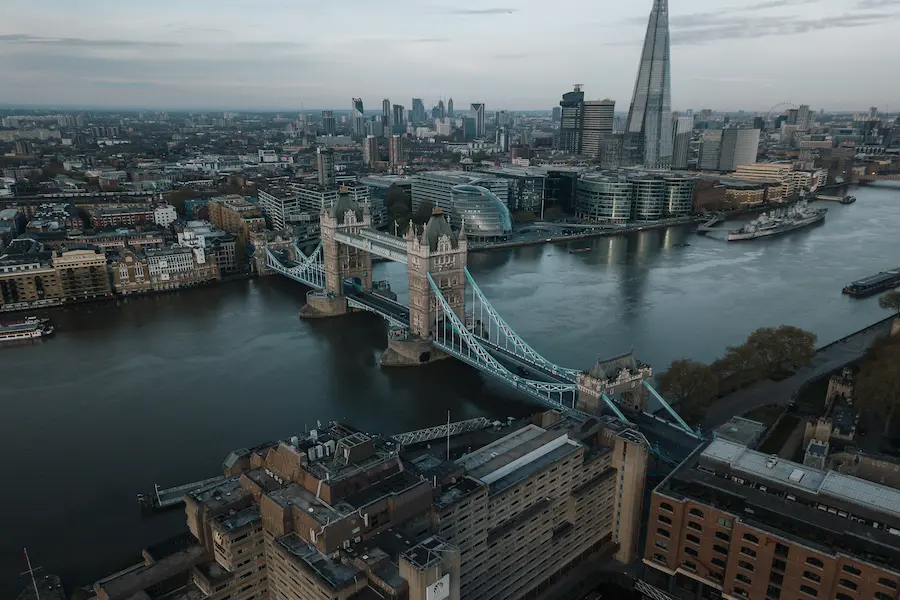10 climate issues for Labour to tackle – Greenhouse Comms

Our wish list for the new Labour government
The election of a new Labour government in the UK ushers in a bold mandate for action on climate and nature: from short-view leaders who fail to look beyond the next election to long-view leadership prioritising long-term sustainability. The party’s Parliamentary majority gives it the authority to deliver on its pre-election environmental commitments, which are in line with what voters are asking for. Recent polling has found widespread support for the UK’s net zero climate target, with renewable energy and clean technology seen as the top sector for creating economic growth opportunities.
There are strong signals that the UK is back in the race to net zero, with restored global leadership on climate and nature. Labour’s key pledges include reaching zero-carbon power by 2030, leading on climate action on the global stage and accelerating the UK’s journey to net zero. Within its first 72 hours in government, Labour announced that it had revoked the de facto ban on new onshore windfarms. It also appointed one of the country’s leading climate experts, Chris Stark, to lead a mission control centre to deliver clean energy by 2030, and announced a new National Wealth Fund to unlock private investment into green industries, led by the Green Finance Insitute with Mark Carney.
All eyes are now on Keir Starmer’s party to deliver. We asked the Greenhouse team to share their top hopes for the new government’s climate policies. These are some of the issues we’ll be keeping an eye on over the coming months:
1. Revoke the new wave of oil and gas licenses
Labour has said it will not issue new oil and gas licences for the North Sea, but it remains to be seen if existing fields approved by Rishi Sunak’s government – such as Rosebank, Cambo and Jackdaw – will be revoked.
2. Reinstate the 2030 ban on the sale of new petrol/diesel vehicles
The party’s manifesto pledged to reinstate the 2030 ban on new petrol and diesel cars, a move that would bring confidence, certainty and momentum back to manufacturers.
3. Introduce a complete ban on bottom trawling in Marine Protected Areas
Zones that are designated to protect rare, threatened or important ocean habitats and species were subjected to over 33,000 hours of suspected bottom trawling in 2023, according to analysis by Oceana UK. We’ll be watching closely to see if the new government stick to Steve Reed’s recent commitment.
4. Deliver a more radical food strategy and increase the agricultural budget
While Labour’s manifesto committed to continuing the government’s Environmental Land Management (ELM) scheme, there was little detail of its agricultural funding plans. Labour has promised a land use framework, but a broader food strategy will be crucial.
5. Uphold commitments to protect 30% of nature by 2030
The UK is facing a spiralling decline of wildlife, with one in six species at risk of extinction. The new government must uphold nature and biodiversity targets to protect at least 30% of the land and sea by 2030, while ensuring the natural world is more accessible to the public.
6. Greater investment and public ownership of public transport, particularly rail
Labour has pledged to renationalise the railway, with Louise Haigh saying that “today’s broken model simply doesn’t work”. Investing in public transport would boost annual GDP as well as significantly cutting emissions.
7. Carry out an independent public inquiry into sewage pollution
There is growing public outrage at the health hazards from sewage pollution and widespread destruction of wildlife, and a recent survey by Surfers Against Sewage found that an overwhelming majority of the British public support an independent public inquiry into the discharge of raw sewage into rivers and seas.
8. Supercharge domestic clean energy
Labour has promised to “switch on Great British Energy” to ensure an affordable, secure and sustainable supply of energy for all households. A key part of its energy policy should also address wider structural issues in the energy market, including decoupling the price of electricity from gas to reflect cheaper renewable energy in consumer bills. Questions remain over the party’s plans to insulate 19 million homes, as well as its approach to increasing heat pump take-up – both of which will be crucial to a fair and clean energy system.
9. Act on air pollution
Between 28,000 and 36,000 people across the UK die prematurely every year because of air pollution. A nationwide strategy will need to look at everything from encouraging the use of electric vehicles, introducing low-emissions zones, boosting cycling and walking, and minimising air pollution from sources such as farming and wood-burning stoves.
10. Bring international climate finance leadership
The new government should help broker a financing package to support inclusive, climate resilient, nature positive development plans, and be at the forefront of negotiations to broker a new framework for climate finance for poorer countries at COP29 in Azerbaijan this November.
We’ll be working with our partners to campaign on all these topics and more – both in the UK and globally. Get in touch with us if we can help you to advocate for policy change on these or any other environmental issues.


